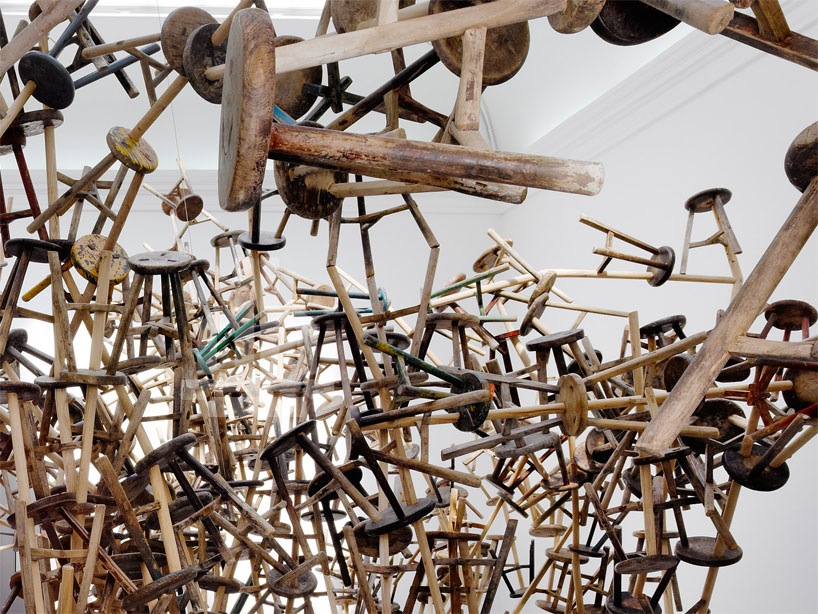
We have Connor Gwin to thank for the following reflection.

There is something happening in America. The pace of life has increased to an almost breakneck speed. New technology allows people to be working all the time – pardon me as I check my Apple Watch – while new social media networks allow people to connect in more ways to those around them.
Newspapers are filled with stories of death, dismemberment, suicide, and record profits for major corporations. Amazon is running modern-day sweat shops in the heartland of America, just so I can have that new book on my doorstep in two days.
Everything is about production, proving your worth, being more useful.
The minimalist movement claims to offer an antidote to the more, more, more culture, but under the surface it is reaching for another way to do more in less time.
The Church is not immune to this trend. Seminary classes focus on doing more in less time; training Christian leaders to be entrepreneurs in a changing world. The goal is production: new communities, new practices, new membership.
I have felt this pressure in my own life and ministry. As a newly minted clergyperson, fresh out of seminary with the new-collar smell still wafting from my clericals, I feel the pressure to be all things to all people.
 There is pressure to be contemplative and relevant, a servant and a leader, an inspiring voice and a behind-the-scenes manager. There is an understated pressure on young clergy to be a magic young adult magnet – the pied piper of the area’s young adults.
There is pressure to be contemplative and relevant, a servant and a leader, an inspiring voice and a behind-the-scenes manager. There is an understated pressure on young clergy to be a magic young adult magnet – the pied piper of the area’s young adults.
In the midst of this pressure I rediscovered an old love: poetry.
Poetry is a pause in a breakneck world. Poetry offers intentionality in an era of clickbait and entertainment pretending to be news. Poetry asks us to pause, to look, to observe. Poetry is, at once, incredibly relevant and breathtakingly irrelevant.
Chinese artist and activist Ai Wei Wei says, “To experience poetry is to see over and above reality. It is to discover that which is beyond the physical, to experience another life and another level of feeling.”
Poetry is words – normal, everyday words – but more so.
Poems offer a reminder that this moment is made precious by the act of observation. Noticing the bird on the fence post, the sweet scent of a blooming flower, or the unrestrained laugh of a child, does not take anything away from the moment and it does not produce anything other than an invitation.
The invitation is to be: in the moment, in the world, in your body.
We are always trying to be somewhere else. Whether we are weighed down with guilt over something in the past or paralyzed with anxiety by the wreckage of the future, we have to constantly remind ourselves to be here, now.
Poetry is the counterpoint to the busy world of prose.
President John F. Kennedy said this of poetry:
“When power leads man towards arrogance, poetry reminds him of his limitations. When power narrows the areas of man’s concern, poetry reminds him of the richness and diversity of his existence. When power corrupts, poetry cleanses, for art establishes the basic human truths which must serve as the touchstones of our judgement.”
Which brings me to grace.
Grace is like poetry, reminding us that we cannot do (or say) everything; that sometimes words are more than words and a Life is more than a life. Jesus is the poem that shook the foundation of the world and tore the veil between this and all of This.
Grace is the poem’s line break; the full stop where the world wants to add “but…”.
 I used to think that I could never be a poet and that poetry was a waste of time, anyway.
I used to think that I could never be a poet and that poetry was a waste of time, anyway.
I also used to think that God’s grace applied to everyone but me. I could tell the world about how far God’s love goes yet without that love truly reaching me.
But like any good art, grace takes time to be let in. I would say comprehended, but art (and grace) is not primarily about comprehension. Comprehension implies completion and grace (and art) is ongoing and living.
Art moves and breathes and has a being-ness all its own.
In the same way, grace moved and breathed and was found in the being of a rough-handed carpenter who knew what is was to create ex nihilo – a table from a dead tree, a world from darkness, life from death.
Here is the Truth:
God’s love goes
all the way down to
whatever hells we construct
for ourselves.God’s love goes
deep and brings
us back to
the surface;doing for us
what we could never
do for ourselves.
When the world encourages us to speed up and do more, we know that our ultimate worth is not tied up in our productivity. When the news of more violence and death clouds our screens and minds, we remember that there was a man who proclaimed Good News.
Poetry is not going to save me, but it will give me the time to pause to let this world in – in all its beauty and chaos.
Poetry is not going to save me, for I have already been saved by grace and this is not my own doing; it is the gift of God.

COMMENTS
One response to “Relevant Irrelevance: Poetry and Grace in a Zeitgeist of ‘More’”
Leave a Reply













Thanks for this Conner. One of my first observation about my life since finding MB was an appreciation of poetry and art in general (ht DS). Art and poetry became words where there were none before.
“It is only the poets who know that metaphor is destiny and that literalism has sapped our metaphorical imagination.” ~ John Dominic Crossan.
Without poets and poetry, life becomes a parade of events that we might try to process but never reflect upon.